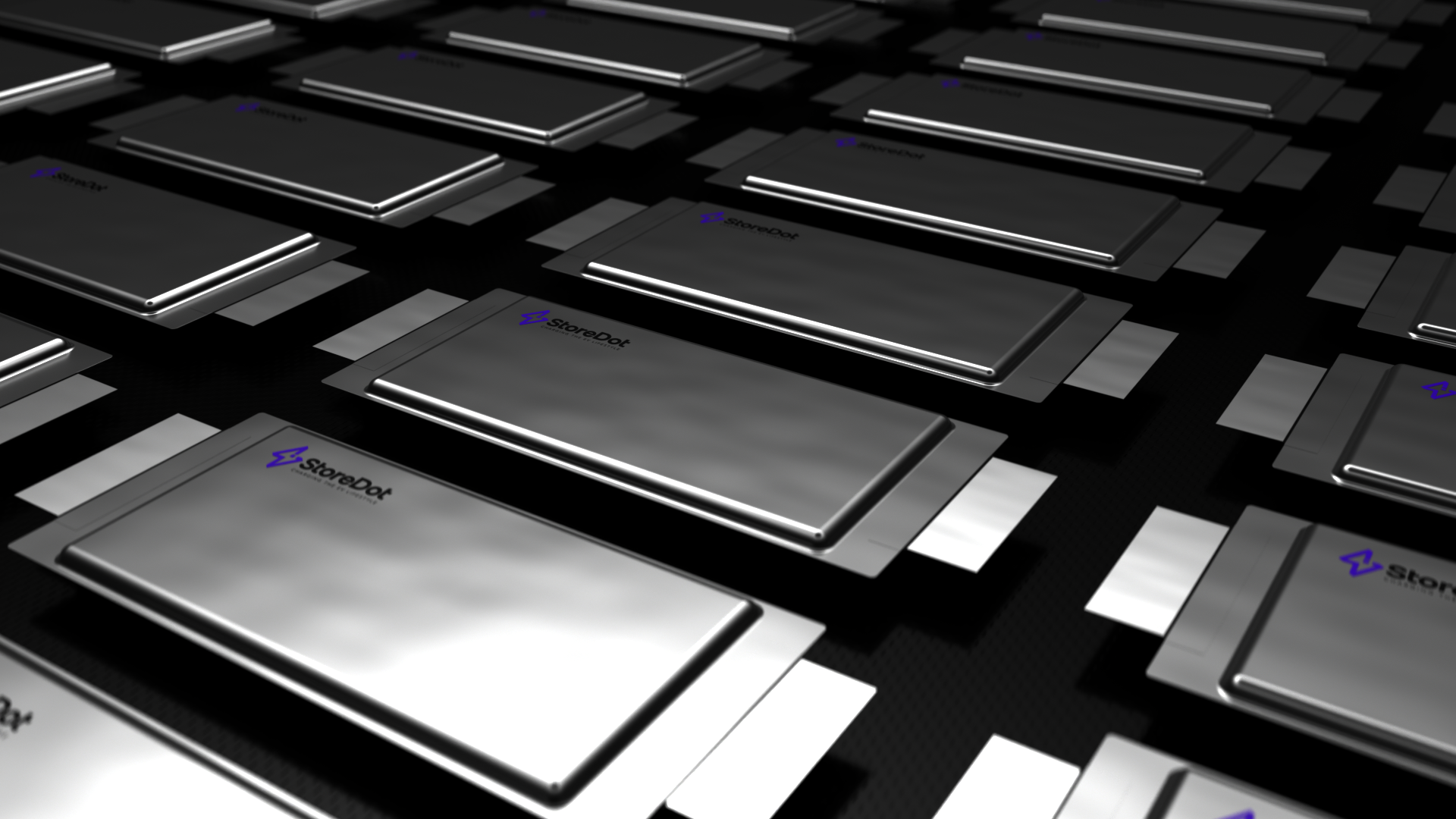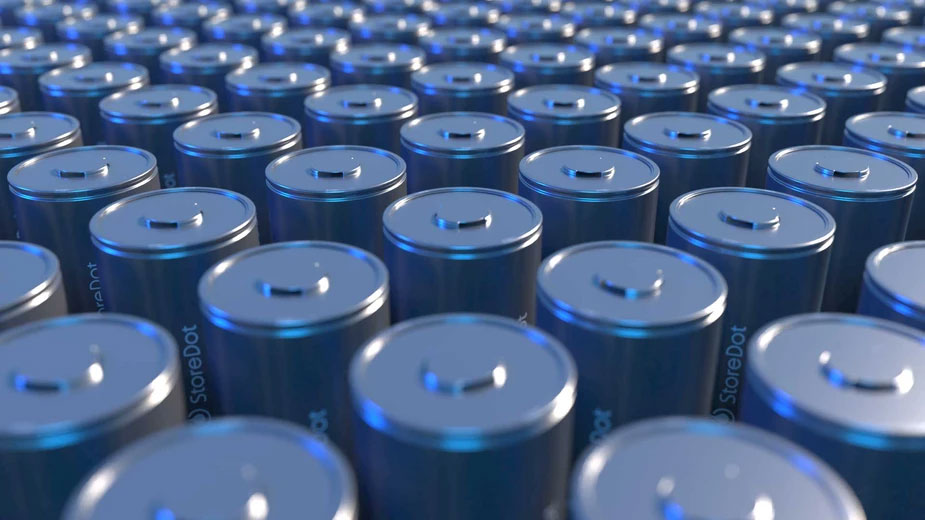Breakthrough in EV batteries: StoreDot demos 100 miles of charging in 5 mins
A company in which Ola has invested

In what is being seen as an important milestone in development of fast-charging batteries for electric vehicles (EVs), Israeli company StoreDot has successfully, publicly demonstrated its ability to charge a full-scale EV battery cell with the energy for 100 miles in just 5 minutes live on stage.
StoreDot, the pioneer of extreme fast charging (XFC) battery technology, has had investments from global biggies like Daimler, Volvo Samsung, BP, TDK, and EVE Energy and VinFast, and India's Ola Electric, among others.
The demonstration took place at the EcoMotion Week 2022 event in Israel, where automakers like General Motors, Volvo, Ford, Continental, The Renault–Nissan–Mitsubishi Alliance, and Hyundai are present.
The Israeli battery company had in March this year presented its strategic technology roadmap “100inX” and set the goal of delivering battery cells that can recharge for 100 miles (160 kilometres) of range in just two minutes within the next ten years.
Doron Myersdorf, CEO, StoreDot, said: "Successfully proving StoreDot’s extreme fast charging battery technology in front of a live audience demonstrates the complete confidence we have in our roadmap to deliver a global step-change in electric mobility. Away from the stage, our transformative technology continues to undergo testing by leading automotive manufacturers in grueling conditions."
The technology behind the EV battery breakthrough
StoreDot's demonstration featured a 300x100 mm pouch cell produced at its Chinese partner EVE energy's manufacturing plant in China. The battery was charged under a 10-minute time limit, during which the cell charged to 20Ah, exceeding the 0% to 80% capacity target set for the demonstration.
The cell maintained a charge rate capable of adding 100 miles of range every 5 minutes of charging. At no point did the battery temperature exceed 33-degree Celsius, well below the recommended operating temperature, and all critical parameters of the cell performed at an optimum level, the company said. The battery tech has been in development for three years and is backed by 12 patents in cell design, software and a self-repairing system that allows batteries to regenerate while in use.
Sign up for breaking news, reviews, opinion, top tech deals, and more.
StoreDot has been developing lithium ion-based battery technologies, using nanomaterials and organic and inorganic compounds, that enable ultra-fast charging for the mobile and industrial markets. The company says the process redefines the chemistry of conventional lithium-ion batteries, taking electric vehicle charging times from hours to minutes. This breakthrough is achieved primarily by replacing graphite in the cell’s anode with metalloid nanoparticles, such as silicon, to overcome major issues in safety, cycle life and cell swelling during the charging process.
Range anxiety will be addressed

Yaron Fein, VP R&D at StoreDot said "Today’s demonstration represents the successful passing of another milestone on StoreDot’s ambitious technology road map. Our intensive development program has already delivered batteries capable of exceeding 1200 consecutive extreme fast cycles and we aim to complete the scaling up of more than 1000 cycles in our EV-size cells by the end of this year. We remain poised to achieve 100in5 by 2024, whilst remaining firmly on track to deliver our ultimate goal of 100in2 by 2032."
StoreDot has already shipped to its automobile partners advanced '100in5' cells for them to undertake real-world testing.
Aside from helping EVs charge faster, StoreDot is also pushing for the longevity of EV batteries — the company ensures that the batteries can retain 70% of their original capacity after 1,700 charging cycles; and it is now developing ‘self-repairing’ battery cells.
Faster charging, and long-lasting batteries in EVs can go a long way in addressing 'range anxiety' among drivers. And this can help speed up the adoption of electric vehicles in the mainstream, a move many believe will help the world cut down on fossil fuels.

Over three decades as a journalist covering current affairs, politics, sports and now technology. Former Editor of News Today, writer of humour columns across publications and a hardcore cricket and cinema enthusiast. He writes about technology trends and suggest movies and shows to watch on OTT platforms.